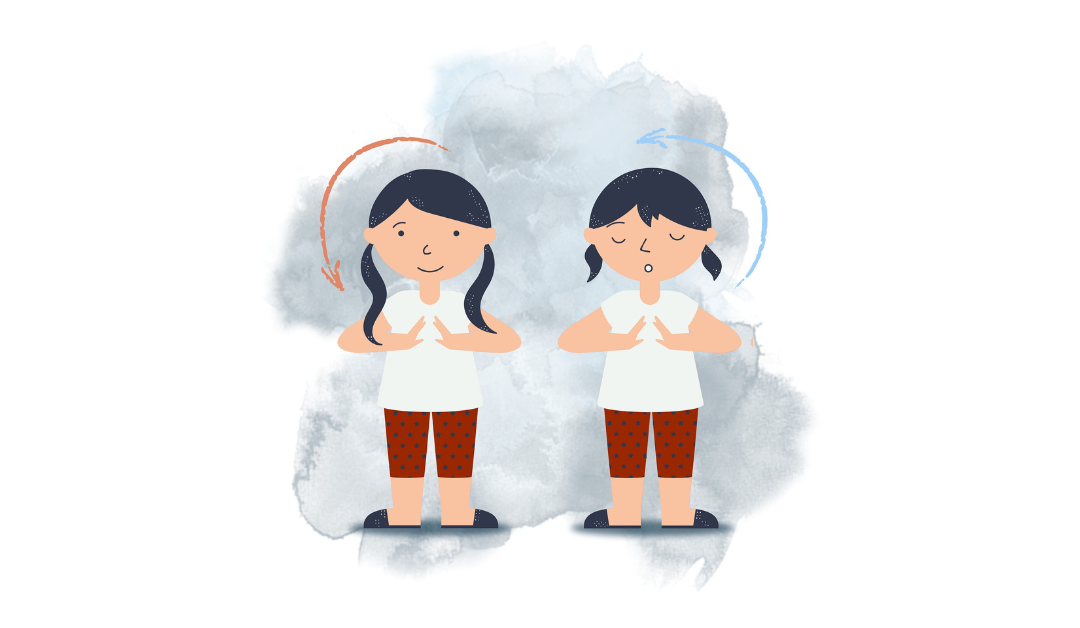
by Calien Trevino | Sep 24, 2024 | Anxiety, General, Trauma- and Stressor-Related Disorders
Let’s be real—break-ups suck. Whether you saw it coming from a mile away or it hit you out of nowhere, the aftermath can feel like an emotional rollercoaster. One day you’re totally fine, and the next, you’re crying over your ex’s old hoodie. Been there.
But guess what? This is actually the perfect time to focus on you. Yep, now that you’re out of that relationship, you’ve got a golden opportunity to shift the focus back to your own goals and personal growth. It’s time to thrive!
Step 1: Self-Care is Non-Negotiable
First things first: self-care. And no, I’m not just talking about bubble baths (though, let’s be honest, they help). Self-care after a break-up is about showing yourself the same love you’d give your bestie if they were going through this.
Start with the basics:
- Eat real food (yes, even if you don’t feel like it).
- Get enough sleep (Netflix won’t cure heartbreak at 3 AM, trust me).
- Move your body (a walk outside can do wonders).
I know it sounds obvious, but when your emotions are all over the place, even basic self-care can fall to the wayside. Don’t let it. Treat yourself like the priority that you are!
Step 2: Reflect, Don’t Ruminate
We’ve all done it—overthinking every detail of the break-up, playing things back in our heads. But instead of spiraling into a “what went wrong?” loop, try reflecting in a more constructive way.
Ask yourself:
- What did I learn from this relationship?
- What parts of me shined during the relationship?
- Where do I want to grow and improve for me, not for anyone else?
This kind of reflection helps you shift from “what was” to “what’s next.”
Step 3: Set Goals That Light You Up
Okay, so now that you’ve had some time to reflect, let’s talk goals. This is the exciting part—because now it’s your time to glow up and do things that make you happy.
Here’s how to start:
- Pick personal goals that actually excite you. Always wanted to learn how to make the perfect sourdough loaf? Go for it. Thinking about signing up for a yoga class? Now’s the time.
- Create a vision board. I know it sounds super 2010, but hear me out—putting your goals and dreams onto a board (whether it’s physical or digital) gives you something tangible to look at every day. Pinterest is your best friend here.
- Start small. Don’t overwhelm yourself by trying to accomplish everything at once. Pick one or two goals and break them into baby steps. You’ll feel a lot less overwhelmed when you see progress, even in tiny doses.
Step 4: Build Your Support Squad
When you’re going through a break-up, it’s so important to surround yourself with people who make you feel good. Your friends and family are the ones who will remind you of who you are when you’re feeling a little lost.
Pro tip: Share your goals with your crew. They’ll hold you accountable, cheer you on, and maybe even join you on some of your new adventures (hello, hiking buddy!).
Step 5: Say Yes to New Experiences
Now is the time to try new things. Whether it’s traveling to a new place, picking up a hobby, or meeting new people, stepping out of your comfort zone can be a game changer. Who knows? You might discover a new passion or meet some cool people along the way.
And let’s be real, the best way to move forward after a break-up is to embrace all the new possibilities that are in front of you.
Step 6: Prioritize Self-Love
Above everything else, make self-love your number one priority. At the end of the day, your relationship with you is the most important one. Be kind to yourself. Celebrate your wins, big or small. And remember that healing isn’t linear—some days will be harder than others, and that’s totally normal.
Step 7: Get Help When You Need It
Lastly, if you’re feeling stuck or overwhelmed, don’t hesitate to reach out to a therapist or life coach. Sometimes you just need an extra hand to help guide you through. There’s no shame in asking for help—it’s part of taking care of yourself.
So, to wrap it up: Break-ups are rough, but they’re also a chance to hit refresh on your goals, your self-care routine, and your life in general. Set some new intentions, surround yourself with good vibes, and most importantly, take it one step at a time. You’ve got this!
Ready to Thrive After Your Break-Up?
What goals are you setting for yourself? Let’s talk about it in therapy! Get started at www.novatherapypllc.com. And remember, you’re stronger and more resilient than you think. Keep glowing, and keep going. 💪✨

by Calien Trevino | Aug 8, 2024 | Anxiety, General, Trauma- and Stressor-Related Disorders
Life’s hectic, right? Between juggling work, social life, and trying to squeeze in some self-care (hello, face masks and binge-watching), it’s easy to feel overwhelmed. But what if I told you there’s a super simple, totally free way to calm your mind and body in just a few minutes? Enter the 444 Box Breathing technique—your new BFF for stress relief.
So, What Exactly Is 444 Box Breathing?
It’s as simple as it sounds. The “444” stands for four counts in each step: inhale, hold, exhale, and then hold again. You do each for four seconds, and voilà—you’ve completed a cycle. Repeat this a few times, and you’ll start feeling like you’ve just finished a mini-meditation session.
Here’s how you do it:
- Inhale slowly through your nose for 4 seconds.
- Hold your breath for 4 seconds.
- Exhale slowly through your mouth for 4 seconds.
- Hold your breath again for 4 seconds.
That’s it. Seriously. So easy, you can do it anywhere—at your desk, in the car, or even during that awkward small talk at the grocery store.
Why It’s a Game-Changer
- Bye-Bye Stress
Ever notice how your breath speeds up when you’re stressed? The 444 Box Breathing technique helps you slow everything down. It tells your body, “Hey, chill out, we got this.” As you focus on your breathing, your heart rate drops, and your mind starts to clear up. It’s like pressing the reset button on a frazzled brain.
- Improves Focus
Whether you’re grinding through a tough work project or trying to nail that tricky yoga pose, this breathing technique can sharpen your focus. By practicing this regularly, you train your brain to stay calm and collected, which means less distraction and more productivity.
- Boosts Mood
Deep breathing isn’t just about calming down—it also helps lift your spirits. The increase in oxygen flow to your brain can make you feel more alert and positive. So next time you’re feeling a bit blah, try a round of 444 and notice the mood shift.
- Better Sleep
Struggling to fall asleep? (We’ve all been there, staring at the ceiling, replaying awkward conversations from 2010.) The 444 Box Breathing technique can help lull you into a more relaxed state, making it easier to drift off into dreamland.
How to Fit It into Your Day
Here’s the best part—you don’t need a fancy setup or a lot of time to practice this. Sneak it in wherever you can:
- Morning Routine: Start your day with a clear mind.
- Midday Break: Use it to recharge during lunch.
- Before Bed: Unwind and prepare for a restful night.
If you’re someone who needs a bit of structure, try setting a reminder on your phone or pairing it with another habit (like your morning coffee or evening skincare routine). The more you do it, the more natural it will feel.
The Takeaway
Life throws a lot at us, but with the 444 Box Breathing technique, you’ve got a simple tool to help you navigate it all. It’s quick, easy, and can make a real difference in how you handle stress, stay focused, and feel overall. So next time you’re feeling overwhelmed, remember: just breathe, 4-4-4, and let the calm take over.
Got a few minutes? Why not give it a try right now? You might be surprised at how good it feels. Feel free to check out Cat demonstrate the 444 breathing technique on our Nova Therapy: Nova Talk Podcast here: https://podcasters.spotify.com/pod/show/novatherapytx

by Calien Trevino | Jun 24, 2024 | Anxiety, General, Trauma- and Stressor-Related Disorders
Life can be a wild ride, especially for those of us in the LGBTQIA+ community. From coming out to dealing with discrimination, the struggles are real and unique. Therapy can be a game-changer. Seeking professional help isn’t just okay; it’s a powerful step toward living your best life. Let’s break down why therapy is so beneficial for the LGBTQIA+ community and how it can help you lead a more fulfilling life.
Breaking Down Barriers
First things first: therapy helps break down barriers. Many of us face societal stigma and internalized shame. Therapy provides a safe space to explore these feelings without judgment. A supportive therapist can help you process your experiences and empower you to live authentically.
Figuring Out Your Identity
Understanding and embracing your identity can be a journey. Whether you’re exploring your sexuality or gender identity, therapy offers a supportive environment to navigate these waters. A therapist can provide guidance, resources, and a listening ear as you discover who you truly are. This process can lead to greater self-acceptance and confidence.
Dealing with Discrimination
Discrimination and prejudice are, unfortunately, part of the reality for many LGBTQIA+ individuals. Dealing with these experiences can be incredibly draining. Therapy offers tools and strategies to cope with discrimination and build resilience. It’s about finding strength in the face of adversity and not letting negative experiences define you.
Building Better Relationships
Our relationships often face unique challenges. Whether it’s family dynamics, friendships, or romantic relationships, therapy can help improve communication and understanding. It’s about building healthier connections and navigating conflicts in a constructive way. A therapist can also support you in creating a chosen family if your biological one isn’t supportive.
Mental Health Boost
Anxiety, depression, and other mental health issues can affect anyone, but the LGBTQIA+ community is often at higher risk. Therapy can address these challenges head-on. With the right support, you can develop coping mechanisms, work through trauma, and improve your overall mental health. Remember, it’s okay to ask for help and prioritize your well-being.
Getting Validated
Finding a therapist who understands and affirms your identity is crucial. An LGBTQIA+-friendly therapist can provide validation and support tailored to your unique experiences. They can help you navigate specific issues like coming out, transitioning, or dealing with societal pressures, making the therapy experience more relevant and impactful.
Personal Growth
Therapy isn’t just about tackling problems; it’s also a space for personal growth. It’s a journey toward becoming the best version of yourself. Whether it’s setting goals, building self-esteem, or finding your purpose, therapy can guide you along the way. Embrace the opportunity to grow and evolve in a supportive environment.
Finding Your Community
Therapy can also help you connect with the broader LGBTQIA+ community. Many therapists can recommend support groups, events, and resources that can help you build a network of supportive friends and allies. Being part of a community where you feel understood and accepted is invaluable.
Conclusion
Therapy is a powerful tool for anyone, but it’s especially beneficial for the LGBTQIA+ community. It provides a safe space to explore your identity, cope with discrimination, and improve your mental health. By seeking therapy, you’re taking a bold step toward a healthier, happier, and more authentic life. So why not give it a try? You deserve to live your best life, filled with self-acceptance, resilience, and love.

by Calien Trevino | Jun 24, 2024 | Anxiety, General, Trauma- and Stressor-Related Disorders
Hey Guys, Let’s Talk Therapy
Let’s face it, fellas—life can be a rollercoaster. With work stress, relationship drama, and just trying to figure out what we want in life, it’s a lot. Yet, many of us still hesitate when it comes to seeking therapy. Why? Because somewhere along the line, society told us that talking about our feelings makes us weak. Spoiler alert: it doesn’t. In fact, going to therapy can be one of the smartest moves you make. Let’s break down why therapy is a game-changer for men.
Smashing the Stigma
From a young age, many of us were told to “man up” and keep our emotions in check. But here’s the thing: bottling up feelings isn’t healthy. Admitting you need some help is actually pretty badass. It shows self-awareness and the courage to tackle your issues head-on. Therapy is all about breaking that stigma and realizing it’s okay to seek support.
Boost Your Mental Health
Anxiety, depression, and stress are more common than you think. Yet, a lot of guys would rather ignore these feelings than address them. Therapy offers a safe space to talk about what’s going on in your head. A therapist can help you understand your emotions and develop strategies to manage them. Better mental health means a better life overall—simple as that.
Better Relationships
Communication can be tough. Whether it’s with your partner, family, or friends, sometimes it feels like you’re speaking different languages. Therapy can teach you how to express yourself better and understand others more deeply. It’s like getting a user manual for human interaction. And trust me, when your relationships improve, everything else starts to fall into place.
Stress Less
We all know stress sucks, but it’s almost impossible to avoid. Whether it’s work deadlines, financial pressure, or just everyday annoyances, stress is a constant companion. Therapy can equip you with tools to handle stress better, so it doesn’t feel like the world is constantly on your shoulders. Learn how to chill and not let stress run your life.
Personal Growth
Therapy isn’t just about fixing problems; it’s also about growing as a person. It’s like a gym for your mind. You learn about yourself, set goals, and work on becoming the best version of you. Self-awareness and confidence skyrocket when you take time to focus on personal growth. Plus, who doesn’t want to level up in life?
Physical Health Perks
Mental health and physical health are linked. When you take care of your mind, your body benefits too. Lower stress levels can lead to better sleep, improved heart health, and even a stronger immune system. So, think of therapy as an investment in your overall well-being.
Career Gains
Struggling with mental health can impact your job performance and satisfaction. Therapy can help you develop coping mechanisms to handle work-related stress and improve your focus and productivity. Understanding your strengths and weaknesses can also help you make better career decisions and find more satisfaction in your work.
Conclusion
Therapy isn’t just for when you’re in crisis. It’s a proactive step towards living your best life. Breaking the stigma around therapy starts with us. Embracing the help of a professional doesn’t mean you’re weak; it means you’re strong enough to seek the tools you need to thrive. So, why not give it a shot? You owe it to yourself to live a happier, healthier life.

by Calien Trevino | Jun 17, 2024 | Anxiety, General, Trauma- and Stressor-Related Disorders
Hey there, everyone! Let’s dive into a topic that can be pretty tough: coping with your parents’ divorce. It’s a big change, and it’s okay to feel all sorts of emotions about it.
First off, know that your feelings are totally valid. It’s normal to feel sad, confused, angry, or even relieved. Divorce affects everyone differently, so give yourself space to process your emotions. Talk to someone you trust—a friend, family member, or counselor—who can listen and offer support. Remember, it’s not your fault. Sometimes, kids blame themselves for their parents’ split, but divorce is between them. Your job is to take care of yourself and focus on your well-being. Communication is key. If you have questions or concerns, talk to your parents openly and honestly. They might not have all the answers, but knowing you can talk to them can ease some of the uncertainty.
Create a routine that gives you stability. With so many changes happening, having a regular schedule can help you feel more in control. Stick to activities you enjoy and spend time doing things that make you feel happy and relaxed. Take care of yourself physically and emotionally. Eat well, get enough sleep, and stay active. Exercise is a great way to blow off steam and boost your mood. Lastly, know that it’s okay to seek help if you need it. Sometimes talking to a therapist can provide valuable support during this challenging time.
Remember, you’re not alone. Many kids go through this, and while it might feel tough now, things will get better with time. Hang in there, take it one day at a time, and be kind to yourself.

by Calien Trevino | Jun 17, 2024 | Anxiety, General, Trauma- and Stressor-Related Disorders
Hey there, folks! Today, let’s dive into a topic that hits close to home for many of us: healing from a broken heart. Whether you’re going through a recent breakup or still reeling from an old wound, dealing with heartbreak is tough, but it’s also a journey of growth and self-discovery.
First off, it’s okay to feel all the feels. Heartbreak can bring up a whirlwind of emotions—sadness, anger, confusion, you name it. Give yourself permission to grieve. Cry it out, journal your thoughts, or talk to a trusted friend. Processing your feelings is the first step toward healing.
Next, take care of yourself. Self-care isn’t just a buzzword; it’s essential when you’re healing from emotional pain. Make time for activities that nourish your soul—whether it’s exercise, meditation, indulging in your favorite hobbies, or simply getting enough rest. Treat yourself with kindness and compassion. It’s also helpful to lean on your support system. Surround yourself with people who lift you up and understand what you’re going through. Don’t hesitate to reach out for emotional support when you need it. Sometimes, just talking things out can lighten the load.
While it’s tempting to dwell on what went wrong or what could have been, try to focus on the present moment and the future ahead. Set small goals for yourself and take steps toward personal growth. Rediscover old passions or explore new interests. Embracing new experiences can help shift your focus and build a sense of purpose. Forgiveness, both for yourself and your ex-partner, is another crucial part of healing. Holding onto resentment or bitterness only prolongs the pain. Accept that relationships end for various reasons, and forgiving doesn’t mean forgetting—it means freeing yourself from emotional baggage.
Lastly, give yourself time. Healing from a broken heart isn’t a race; it’s a gradual process. Be patient with yourself and trust that with each passing day, you’re getting stronger and closer to finding peace. Remember, everyone’s healing journey is different, and there’s no one-size-fits-all solution. Trust your instincts, take it one day at a time, and know that brighter days are ahead. You’ve got this!

















